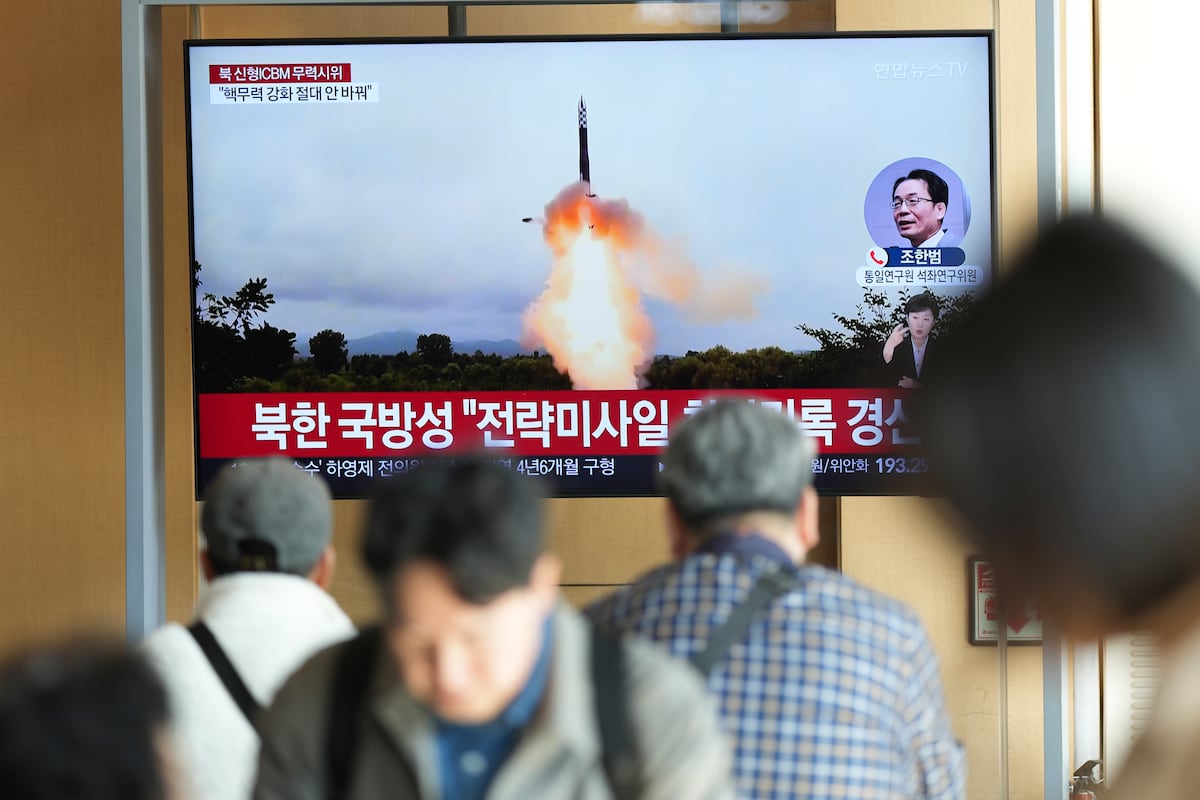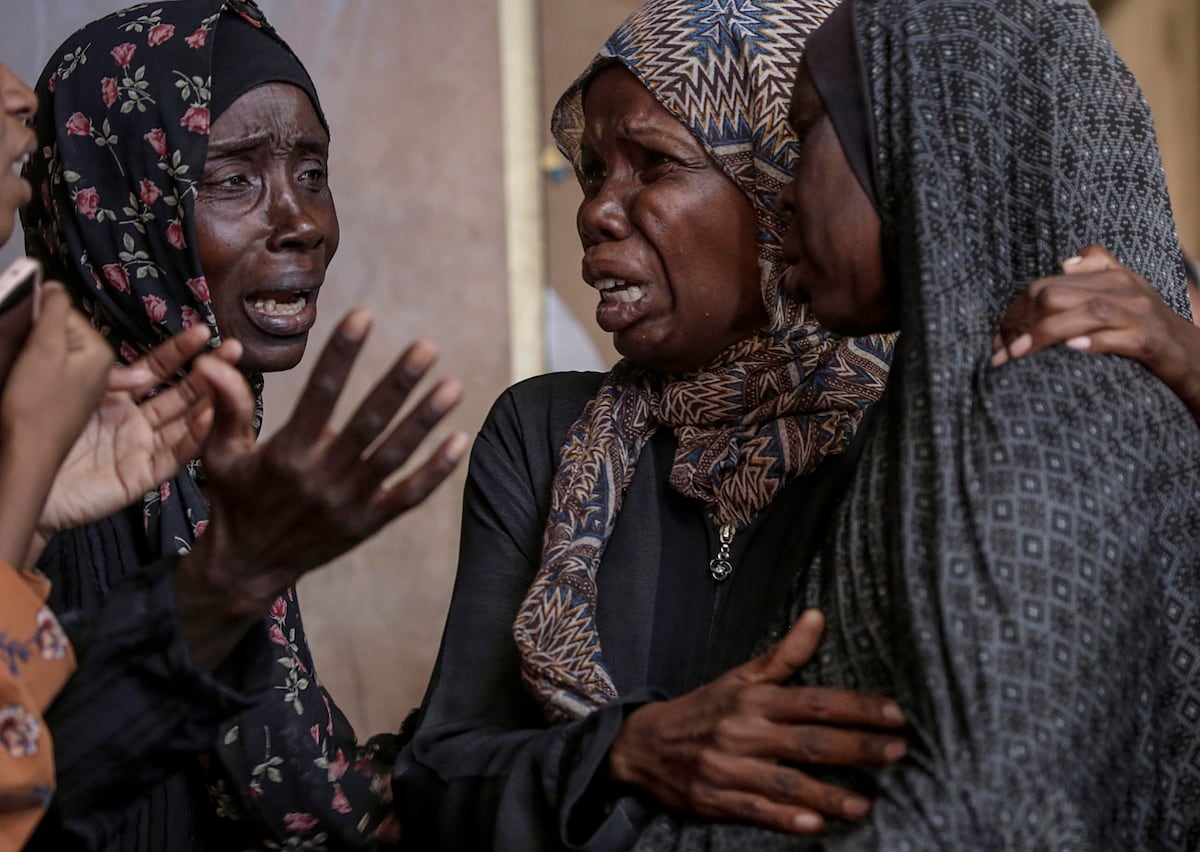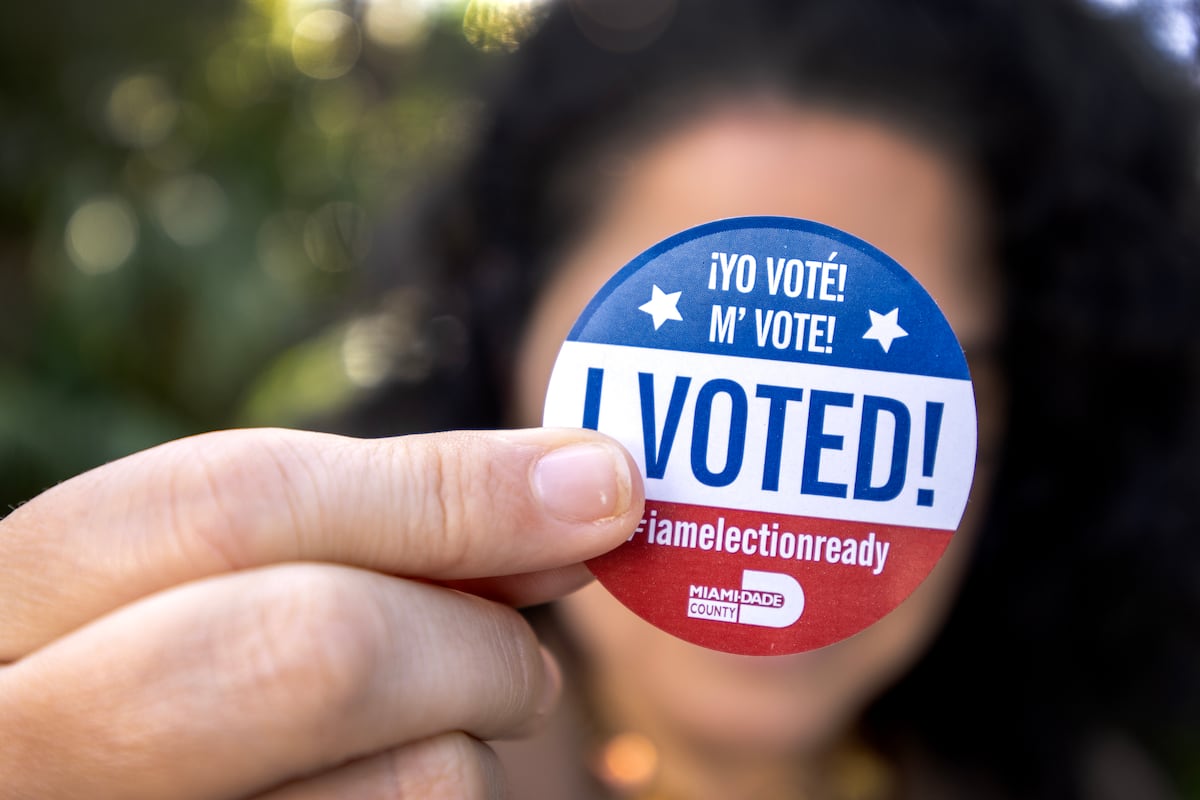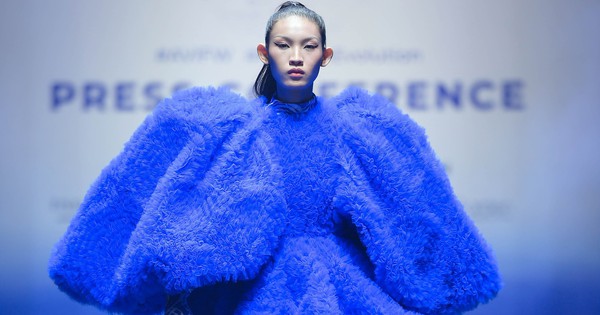The Democratic candidate for the United States presidential elections, Kamala Harris, has come out this Thursday against the sexist and paternalistic comment that her rival in the elections, Donald Trump, made the day before at a rally in Green Bay (Wisconsin). The Republican said at a rally that he will “protect” women “whether they like it or not.” The Harris campaign already criticized that comment on Wednesday, but this Thursday, the vice president appeared briefly in Madison (Wisconsin), before embarking on a trip to Arizona, to denounce that comment as “offensive” not only to women, but to everyone. The presidential elections are marked this year by a huge electoral gender gap, in which Trump achieves more support from men, and Harris, from women.
Trump said at his rally in Green Bay, Wisconsin, that his “people” had previously told him they didn’t think he should say he wanted to “protect the women” of the country, comments he had made before. “They said, ‘Sir, I think it’s inappropriate for you to say that.’ I pay these guys a lot of money. “Can you believe it?” continued the former president to the applause of his followers. And he was not deterred: “I told them: ‘Well, I’m going to do it whether the women like it or not. I’m going to protect them. I’m going to protect them from the immigrants that come. “I’m going to protect them from foreign countries that want to hit us with missiles and many other things.”
Harris appeared this Thursday in Wisconsin to refer to those statements: “I think it is actually very offensive to women in terms of not understanding their independence, their authority, their right and their ability to make decisions about their own lives, including their own bodies,” he said. Later, during question time, he pointed out that he did not only see it as an affront to women: “I think it is offensive to everyone, by the way.”
“This is just the latest in a series of revelations by the former president about what he thinks about women,” he added, focusing on abortion. “[Trump] He has said that women should be punished for their choices, he has spoken of his pride in taking away a fundamental right from women, he has created a situation in the United States in which one in three women now lives in a state with a ban on Trump abortion and has legal restrictions on the right he legitimately should have to make decisions about his own body,” he continued.
Electoral gender gap
The electoral gender gap has opened more than ever in these presidential elections. Men mostly support Trump, while women opt for Harris, according to the surveys, with differences in support that exceed 10 points in both cases and that, in the end, practically counterbalance each other.
This protective and patriarchal language is prevalent among the Trumpist electorate, as proven by the fact that the former president prefers to continue insisting on it against the opinions of his advisors. However, there have also been some critical voices in this regard in his own party, such as that of his main rival in the primaries, Nikki Haley, who believes that these messages scare away female voters.
“They have to analyze how they talk about women. This bromanceand this issue of masculinity, it borders on the edge to the point that it is going to make women uncomfortable,” he said in an interview with Fox News on Tuesday. “This is not the time for them to masculinize themselves too much with this nonsense.” bromancethat they have mounted. 53% of the electorate are women. Women are going to vote. “They care about how they are spoken to and they care about the issues,” he added. Haley received 157,000 votes, 16.5%, in the Pennsylvania Republican primary. Attracting those voters could be decisive in winning in the most decisive of swing states.
Donald Trump has been convicted of sexual abuse in a civil trial, has been accused multiple times of sexual misconduct, and frequently launches sexist and misogynistic attacks against his rival, Kamala Harris. The display of hypermasculinity at his rallies is largely deliberate. Kristin Kobes du Mez, author of Jesus and John Wayne. How white evangelicals corrupted a faith and fractured a nation, studied the paradox of conservative evangelical voters supporting a man who contravened all family values, but concluded that Trump was actually, in some ways, “the culmination of evangelicalism’s embrace of combative masculinity.” , an ideology that enshrines patriarchal authority and condones a ruthless display of power.”
Kobes du Mez drew a parallel between Trump and the actor John Wayne, who “did not lead a moral life by the standards of traditional Christian virtue,” but “for many evangelicals he symbolized a different set of virtues, a nostalgic longing for an ‘America’. Christian’, a return to ‘traditional’ gender roles and the reaffirmation of a (white) patriarchal society.”
Harris has made the right to abortion one of the star proposals of her campaign, although actually regulating it for the entire country depends on Congress, where Democrats are not expected to have the majority necessary for it. Coinciding with the elections, there are a dozen referendums on abortion in different states that Democrats are trying to use to mobilize their voters. Trump is uncomfortable with the issue of abortion and has changed his position again and again. Finally, he has tried to find a balance by saying that, as has happened since the Supreme Court repealed it as a federal right, it is each State that must regulate it.







